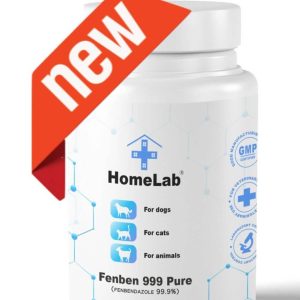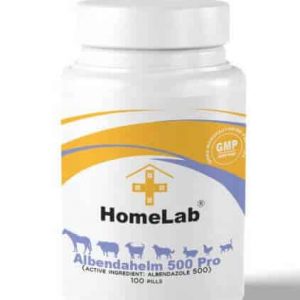If you’re a long-time dog owner, you’ve probably had to deal with worms at one point or another. Worms affect all kinds of pups. It doesn’t matter what breed they are. It doesn’t matter how old your dog is. Even if your pup is only 2 weeks old, it can suffer from worms. That’s why it’s important to know what causes these pesky parasitic infections, how to avoid them, and what treatment to use.
Whenever you say worms, you imagine those thin, squishy, dirt-crawlers that you use when fishing, right? Unfortunately, that’s only one of the many kinds of worms that can infect your pup.
To better protect your dog from infection, you’ll need a more thorough understanding. Sure, the thought of a creepy little worm invading your pup’s intestines is unpleasant, but knowing the causes, symptoms, signs, and treatment is vital to your dog’s health.
Symptoms of Worms in Dogs

Before we get to treating worms in dogs, we first need to identify them. Your dog might be suffering from a parasitic infection and you have no idea. So how do you find out for sure? Well, there are some general signs and symptoms you can look for that indicate your pup has some sort of worm infection.
Some of the main worm-related symptoms to look for include:
- Diarrhea
- Abdominal pain
- Weight loss (you might notice your pup getting thinner)
- Vomiting
- Less-than-perfect fur or dull-looking coat
- Bloated appearance
- Lethargy
- Dehydration
- Malnutrition, especially anemia-related
- Intestinal blockage
- Pneumonia
- Bloody stool (colors may vary from bright red to darker purple)
These are all general signs to look for if you suspect a worm infection. However, some worms can cause very specific symptoms to appear on your pup.
For example, if you notice your dog experiencing respiratory symptoms like coughing or exercise intolerance, you could suspect heartworms. In fact, heartworms have a series of unique symptoms like weak pulse, labored breathing, and even pale gums.
Types of Worms

Now that we know the general symptoms to look for when we expect a worm infection, let’s check out the different types of parasites that can infect your pup.
Roundworms
Let’s start with roundworms since they’re the most common of all the intestinal worms. Scientifically speaking, there are two main types of roundworms: Toxocara canis (T. canis) and Toxascaris leonina (T. canis).
Roundworms can affect dogs of all age and they can even be transferred to humans, but you’ll usually find them in the case of young puppies. They’re usually passed on from the mother to the young ones.
That’s why it’s important that your newborn pups get a checkup at the vet’s. All you need is a stool sample to determine a roundworm infection. You definitely shouldn’t leave it untreated or lazy out because untreated roundworm infections can badly affect your pup’s health and growth. In fact, in some cases, it can lead to death!
One thing you should pay special attention to is that certain types of roundworms can infect humans, as well. For example, a rare kind of roundworm, called the raccoon roundworm, is usually found in North America and can easily be transferred from pups to humans.
This type of roundworm is picked up by your dog via the ingestion of infectious eggs or hosts (rodents, rabbits, and birds). You should always keep an eye on your pup and if you think there’s a chance it’s become infected, seek treatment immediately. It’s a matter of both you and your pup’s health.
Tapeworms
Unlike roundworms, tapeworms are transmitted by the ingestion of fleas or flea-ridden animals. The most common type of tapeworm in the U.S. is the Dipylidium caninum. Of course, there are hundreds of different types, but that’s the one you should worry about the most.
Once the flea reaches your pup’s body, the tapeworm begins to hatch and hooks itself onto your pup’s intestinal lining. That’s when all the real damage begins. Your dog starts experiencing things like weight loss because the tapeworm is literally living off of your pup’s food.
That’s just another reason you should be careful when it comes to fleas. Try to protect your pup from them as much as possible. But don’t worry. Tapeworms aren’t the end of the world. If your vet finds anything to suggest your pup might have a tapeworm infection, treatment is simple.
First of all, you’ll need some medicine, which can be administered orally or via injection. That’ll get rid of the tapeworms. Next, you’ll need to get rid of the cause or carrier of the tapeworm eggs, which are the fleas. You’ll need to disinfect your dog as well as your home or environment.
Hookworms
Now here’s a type of worm you can’t ignore. Why? Because hookworms can lead to anemia, serious manifestations, and even death if left untreated. Despite their minute size (about an eighth of an inch), they take a huge toll on your pup’s health.
The reason hookworms are so deadly is that they attach themselves to the lining of your dog’s intestinal walls. After that, they start feeding on its blood in very large amounts. This is why hookworms shouldn’t be left untreated.
Like most worms, hookworms can be transmitted by the ingestion of larvae. Keeping your pup’s environment clean is essential. However, there’s another mode of transmission that is unique to hookworms: through a mother’s milk. This is why treating a nursing dog immediately is vital.
If you have more than one pup, you should also pay extra attention. If one of them becomes infected, they can easily pass more than a hundred microscopic eggs on to the other pups via stool. You should also be careful because humans can become infected, as well.
Hookworms have a very simple diagnostic test called fecal flotation. A stool sample is mixed with a special solution that causes hookworm eggs to float to the top. Once you’re certain your dog has hookworms, you’ll need to follow a specific treatment regimen.
Treatment of hookworms starts out with deworming medication that is given twice in order to get rid of the adult worms. Two to four weeks later, your pup is given another dose with the goal of eliminating any newly-developed ones.
Whipworms
Whipworms are another type of worm that can be transmitted via soil, food, water, or feces. However, there’s one huge concern when it comes to whipworms. They can survive for up to 5 years in warm, moist environments. This is why proper hygiene and cleaning after your dog is extremely important.
Symptoms of whipworms are usually mild but can range from inflammation and weight loss to anemia and diarrhea. All of this aside, the main problem with whipworms is that they’re not easy to diagnose.
False-negative tests are actually quite common. It might take a few repeat tests before you’re absolutely sure your dog has an infection. If your dog shows signs of bloody stool, you should consider testing for whipworms repeatedly. Once your vet has diagnosed a whipworm infection, they’ll start your pup on a 3-month treatment plan.
Heartworms
Now, here’s the worst of all the worms: heartworms. These dangerous little crawlers can settle down in your dog’s heart, reproduce, and grow. They can cause all kinds of problems like heart failure, lung diseases, organ damage, and even death if left untreated. The good news is that heartworms might be the deadliest, but they’re the easiest to prevent.
Heartworms mainly infect dogs but these pesky parasites can be transmitted by dogs, wolves, coyotes, and foxes. That’s why you’ll usually find them in places along the Atlantic and Gulf coasts of the U.S.
Treating heartworms is no easy feat. It takes a long time to treat, costs a lot of money, and can have a bunch of side effects. On top of all that, you have to restrict your pup’s movement. It has to stay confined and can’t exercise or play as it wishes. It’s important to regularly test your pup for heartworms because that’s one type of infection you don’t want to deal with.
Treatment of Worms in Dogs

When it comes to treating your pup’s worm infection, there are two approaches you can take: deworming medication and natural remedies. It really comes down to your preference. Some people prefer a slow, natural, non-chemical solution. Others prefer a quick-fix. Here are a few good examples of both.
Treating Worms with Medication
There are several types of medication used to treat worms in dogs. Each type of worm has a unique drug that works best against it. Let’s take a look at a few good examples.
Praziquantel
If your dog is diagnosed with tapeworms, your vet will most likely prescribe Praziquantel. It’s quite effective against several kinds of worms but it’s like kryptonite for tapeworms. Some brands of Praziquantel can be found over-the-counter while others require a prescription to be dispensed. It comes in all sorts of dosage forms: powders, tablets, injections, and even topical products.
Regardless of how you administer Praziquantel, it pretty much works the same way. This deworming medication looks for tapeworms, binds to them, and causes some serious damage. After that, your pup’s immune system kicks in and kills the worms.
Praziquantel is pretty strong and works really well in most cases. The only side effects you might have to worry about, even though they’re quite rare, are the bitter taste and possibility of nausea. Other than that, Praziquantel is quite safe. You can use Praziquantel from the age of 4 weeks. It’s also considered safe for pregnant dogs so that says a lot about its safety profile.
Fenbendazole
You’ve probably heard of Fenbendazole. It’s quite popular because of its wide spectrum of activity. Rather than focusing on one type of worm, Fenbendazole is effective against several parasites including Roundworms, Hookworms, Tapeworms, Taenia tapeworms, Giardia protozoal parasite, Lungworms, and Flukes.
You can find Fenbendazole in the form of oral liquid (given by syringe) or granules that can be cleverly sprinkled onto your pup’s food.
The reason Fenbendazole works on so many intestinal parasites is its impressive mechanism of action. Simply, it prevents these microorganisms from taking in glucose, a source of energy. Eventually, these worms become weak, wither, and die.
In terms of safety, the worst Fenbendazole can do is cause a little nausea or vomiting. That being said, you should follow your vet’s dosing instructions to the letter. They might start you out on Fenbendazole for 3-5 days and then require a second dose, based on the type of worm.
Pyrantel Pamoate
Some people consider Pyrantel Pamoate to be the safest and most common deworming medication on the market. It’s perfect for Pinworm, Hookworms, Roundworm, and stomach worms.
You can find Pyrantel Pamoate in the form of tablets or liquid solutions. It’s also a very common component in most heartworm prevention tablets.
The reason Pyrantel Pamoate is so effective is that it literally paralyzes worms. It attacks the worm’s nervous system, immobilizing it and the worm eventually gets excreted.
Now, why is Pyrantel Pamoate so safe for dogs? Because it never reaches your pup’s bloodstream. It works locally in its intestinal tract, gets the job done quickly, and then passes through right away.
Treating Worms Naturally

If you’re not a fan of medications or anything chemical-based, there are natural remedies you can use to get rid of your pup’s worms.
Veggies
The first thing you can do is change your dog’s diet. You should feed your pup things like grated raw carrot, watercress, greens, squash, fennel, papaya, and pumpkin. All of these foods make its intestinal tract less attractive to worms and make it difficult for worms to latch on. Orange veggies are also great because they’re full of vitamin A, which helps fight roundworms.
Dried Coconut
Dried coconut works as a vermifuge which can help get rid of your pup’s tapeworm problem. All you need is a small amount of dried coconut sprinkled on your dog’s food. For small pups, about a teaspoon should be enough. For medium dogs, you’ll need a couple of teaspoons. As for large breeds, you’ll need a tablespoon of dried coconut.
Probiotics and Digestive Enzymes
The idea behind probiotics is that they help strengthen your pup’s immune system. Having a good amount of healthy gut bacteria is important if you want to fight off intestinal worms. Digestive enzymes, as the name suggests, help support your dog’s digestive system and give it a better chance to kick out those worms and parasites.
Apple Cider Vinegar
Apple cider vinegar is another thing you can try if your pup is suffering from worms. It helps alter your dog’s pH levels making its body unsuitable for worms to grow in. It literally kills off the worms. Start off with about ¼ teaspoon of apple cider vinegar and work your way up to a full teaspoon. Add it to your pup’s drinking water daily and it’ll help treat and prevent worm infections!
Pumpkin Seeds
Another thing you can try is raw, organic pumpkin seeds. They can help prevent and even kick worms out of your dog’s system. Just take a bunch of seeds, grind them, and mix them into your pup’s food. Ground meat is ideal if you want to hide a good amount of seeds. However, be careful not to give your pup too much.
As a rule of thumb, about ¼ teaspoon is enough for every 10 pounds of weight. You can use pumpkin seeds safely even in case of pregnancy and they’ll get rid of your pup’s worm problem in no time.
How to Prevent Worms in Dogs
Treating your dog’s worm infection isn’t really a walk in the park. It’s always frustrating, difficult, and unpleasant for both you and your pup. Sometimes it’s not even possible. That’s why responsible dog owners do their best to keep their pups safe and prevent an infection in the first place.
While each type of worm has its own set of preventative measures, there are some general precautions you can keep in mind to prevent worm infections such as:
- As soon as your pup turns 3 weeks old, consider taking it to the vet to check for worms and get proper treatment.
- Talk to your vet about administering monthly prophylactic worm medication year-round.
- Do a fecal examination two to four times a year just to be safe.
- Always keep your pup’s environment clean at all times.
- Clean any feces in your backyard every 2 weeks.
- When going on a walk, always clean up after your dog immediately and dispose of your gloves and the sealable bag right away.
- Try to limit exposure to things that might be contaminated like soil, objects, and other animals.
Conclusion
Worms are extremely unpleasant. They can make both you and your pup miserable, especially if they’re the type that can be transferred to humans. Luckily, it’s easy to treat worms naturally and with medication, so long as you know all these tips and tricks. Once you’ve cured your dog’s worm problems, it’s up to you to make sure they never come back!
-
Product on sale
 Fenbendazole Powder 100 percent Pure Dewormer for Dogs 100 gramsOriginal price was: $120.00.$108.00Current price is: $108.00.
Fenbendazole Powder 100 percent Pure Dewormer for Dogs 100 gramsOriginal price was: $120.00.$108.00Current price is: $108.00. -
Product on sale
 Albendazole Tablets Dewormer for Dogs 100 count (Albendahelm 500 Pro)Original price was: $65.00.$55.00Current price is: $55.00.
Albendazole Tablets Dewormer for Dogs 100 count (Albendahelm 500 Pro)Original price was: $65.00.$55.00Current price is: $55.00.
 Total Pooch Dog Supplements, Tear Stain Removers, De-wormers, Tylosin for Dogs and other great products.
Total Pooch Dog Supplements, Tear Stain Removers, De-wormers, Tylosin for Dogs and other great products.





